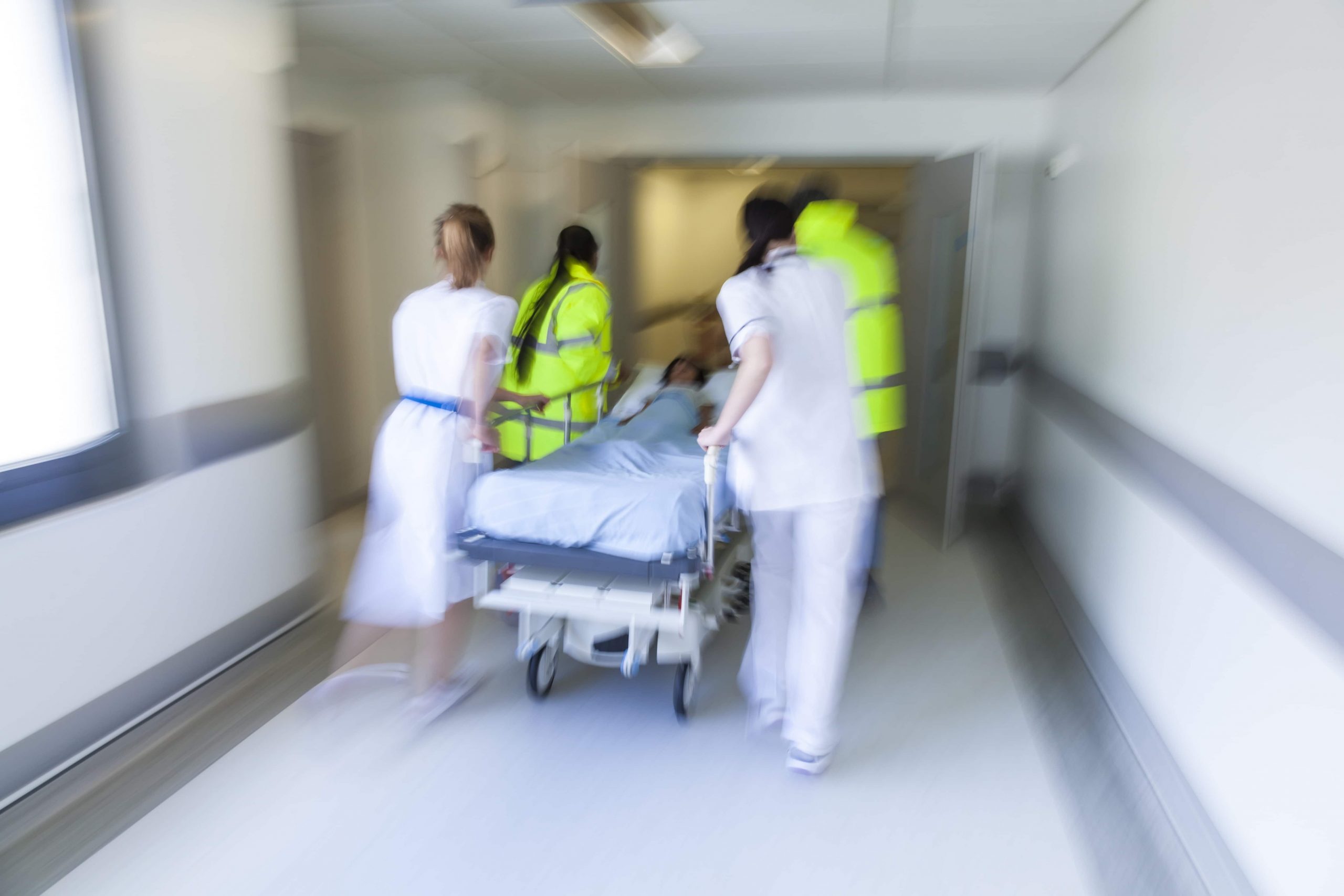If you come to the emergency room with acute chest pain, the first thing we’ll do is get you triaged then you’ll be sent to the Chest Pain Clinic. A nurse will ask you some questions first, then a doctor will come in and ask you questions like:
• When did the pain start?
• How long have you had the pain?
• What makes the pain worse or better?
• Did you take any medication for the pain?
• Does the pain happen after you eat or is it related to meals in any way?
• Is the pain related to physical exertion?
While this is happening, there are many other things going on. Nurses and doctors are likely ordering an EKG or electrocardiogram for you, which will help us determine if you have an acute heart problem. You will also have blood work done, and if needed, you will be administered pain medicine. Sometimes, patients are also put on oxygen. If doctors believe the pain is in the heart itself, you might be given nitroglycerine, which is a medication that dilates your blood vessels – mainly the coronary artery – so more blood can get to your heart if there’s blockage.
When someone comes to our emergency room with chest pain, it’s a team effort. You’ll have some health care providers doing your blood work, some doing your EKG and a physician who examines you. That’s how we determine if your symptoms are heart-related or not.
We also discuss your family history and risk factors for heart disease, then we put everything together and assess the situation. Some chest pain might be an acute heart attack, then you would be taken from the ER to the heart catheterization lab. A heart catheterization is a test we do to take pictures of your heart’s arteries. If we find any blockage, we open those blockages via angioplasty and a stent. We put a stainless steel wire mounted on a balloon to deploy the stent where the blockage is, so more blood can get through that particularly artery.
If your blood tests and EKG are negative, you will do a stress test. There are several types of stress tests, from very sophisticated ones using nuclear medicine to a regular stress test where you would be hooked up to another EKG and put on a treadmill to walk. By “stressing” the heart, we can see if there’s an area in the heart that might be lacking oxygen or blood supply. If there is the possibility of blockage, we’ll discuss the next steps with you, which could be either medications or a heart catheterization.
Remember: By having a group of people who specialize in knowing how to treat patients with chest pain, it facilitates the further testing and studies we need to determine the real cause of your symptoms.

